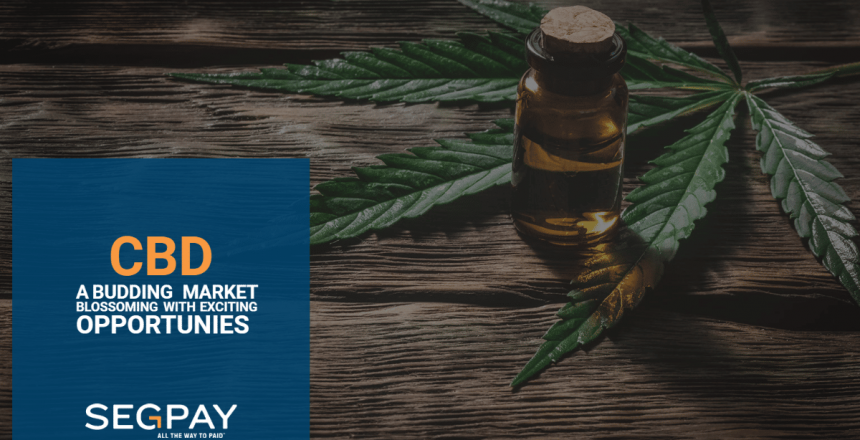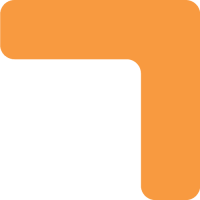- 5 minute read
CBD stands for cannabidiol. CBD is the natural and non-narcotic oil, extracted from the cannabis plant. It does not have any of the psychoactive properties of THC, the primary ingredient in cannabis that “gets you high.” This clearly differentiates hemp from narcotics (hashish and marijuana). How is CBD obtained? The most common methods is the same one being used to extract essential oils for perfumes or food additives.
The global CBD Market accounted for $12.8 billion (2021) and is expected to grow at a 22% CAGR between 2022 and 2028.

Source: gminsights.com
Rising awareness of the oil’s benefits propelled a budding CBD industry which generates billions of dollars each year. Studies have been carried out with Epidyolex®, a CBD drug authorized to treat epilepsies. Nabilone is a cannabis-based drug, licensed for treating severe sickness from chemotherapy and Sativex is licensed in the UK for patients with Multiple Sclerosis muscle spasticity. CBD oil is said to alleviate anxiety and sleeping disorders and according to a study from the Michigan University in 2021, many fibromyalgia patients use CBD to manage pain.
Europe, a complex and fragmented regulatory landscape
The European region is the largest CBD market after North America (USA and Canada). In 2019, the European Commission (EC) stopped classifying CBD as a narcotic and concluded that CBD could be considered as a novel food (NF). Novel Food is defined as food not consumed significantly by humans in the EU before 15 May 1997. However, this year the EU published a statement, saying that ‘knowledge gaps still need to be addressed’ before a final decision on CBD as a NF can be made.
Meanwhile, EU member states drafted their national laws. Western European and Mediterranean countries base their BDS regulations on several criteria, including the legally allowed percentage of THC (< 0.2% on average). It is important to know that cannabis products are still very much illegal in many European countries, especially in Eastern Europe. This presents CBD consumers with a serious risk when traveling abroad. Although this diverse legal landscape can become very confusing for CBD companies and consumers, this has not stopped the European CBD market from growing explosively. Nonetheless, the legal landscape must be studied carefully before doing business in a specific jurisdiction. Let us explore some of Europe’s most lucrative CBD markets.

Source: Financial Times
Germany, the EU’s largest CBD market
Germany is clearly in the lead in the EU, after the country legalized the medical use of cannabis in 2017. The current EU CBD market is estimated at $2 Billion in value, with Germany at $1B or 50% of the market. CBD products with a THC content lower than 0.2% THC are sold over the counter, but German law does not allow CBD companies to market any health claims. CBD-based cosmetics and foods can be sold freely, if authorized by the European Commission and CBD prescription medicine can be bought from a licensed pharmacy.
Nordic Oil, Endoca, Reakiro and Hemp Bombs are some of the big names in Germany’s international CBD market; a market with a bright future now that the German government is rumored to be drafting an even more permissive law. The blossoming German CBD market has not gone unnoticed across the Atlantic Ocean. Just a few weeks ago, Denver-based Mellow Enterprise, formerly known as CBDD, announced the signing of a letter of intent to partner with German CBD and cannabis specialist Home of CBD which will become Mellow’s distribution partner in the EU’s most profitable legal cannabis products’ market.
Switzerland, legal CBD Hub of Europe
When we think of Switzerland, our mind goes to skiing resorts in the Alps, rich chocolate, expensive watches and melted fondue cheese, but what’s less known is that Switzerland has become Europe’s legal CBD hub. It is the only European country with a maximum legal THC threshold of 1%. The variety of cannabis-based products sold in Switzerland ranges from CBD cosmetics, foods, oils, beverages, and much more. In 2022, Switzerland is launching a three-year trial period on the sale of cannabis for recreational use. This year, a former banker and a CBD manufacturer launched an online trading platform for cannabis products aimed to promote “seed-to-shelf” quality and transparency. The CBX Stock Exchange (CBX) is based in Geneva, Switzerland. CBX is an online marketplace for buyers and sellers of cannabis products whose safety and quality are certified by a third party, an independent laboratory in Switzerland. It may come as a surprise that The Netherlands, known around the world for its coffeeshops where locals and tourists legally smoke marijuana and hashish, applies a rather strict legislation with regards to CBD, which must contain less than 0.05% THC. Furthermore, the oil has to be extracted abroad (often in Switzerland) and from cannabis that is cultivated in the EU.
The UK, the second largest legal cannabinoid consumer market in the world
British consumers spend more on CBD than on Vitamin B and C combined. Private CBD maker British Cannabis is in the lead after a total of 310 products were recently advanced by regulators. A total of 3,536 products were preliminarily approved by FSA as new or “novel” foods, according to the list, released on March 31 by the Food Standards Agency (FSA). Even though the UK now has the most evolved CBD regulatory framework in the world, many CBD businesses find themselves in the waiting room awaiting full authorization. Paul Tossell, head of the novel foods and radiological policy team at the UK’s Food Standards Agency (FSA) told FT.com in April this year that he does not expect any of the latest CBD business applications to be authorized as “novel food” before mid-2023. This legal limbo has not stopped the British CBD market from growing exponentially over the past few years.

More details about the British CBD market can be found in the Association for the Cannabinoid Industry (ACI) and Centre for Medicinal Cannabis (CMC)’s report: Green Shoots – Sowing The Seeds Of The New UK Cannabinoid Market with a new assessment of the size of the UK consumer cannabidiol (CBD) market.
In Conclusion
Even though the European Commission’s final decision about CBD as a Novel Food product is still under evaluation, this has not stopped the European CBD market from growing. Many EU countries have taken initiatives to regulate the extraction and sales of cannabis products. Once all legal hurdles are cleared, investors are expected to jump on the many business opportunities that this budding market has to offer. A great variety of non-narcotic cannabis-based products are sold online. The question is whether payment facilitators are ready to serve this exciting, but legally complex market. Segpay has acquired years of experience, offering North American CBD merchants secure payment services in compliance with rules and regulations and is ready to answer all your questions with regards to the exciting commercial opportunities that the legal CBD business has to offer.
Want to learn more about CBD payment processing options?
Contact us today, we’d love to chat with you about processing payments for CBD.It’s another way we are here for our merchants All the Way to Paid ™. Reach out to us with your questions at [email protected]



